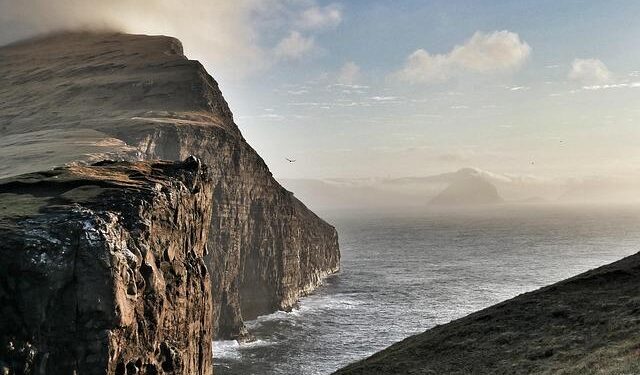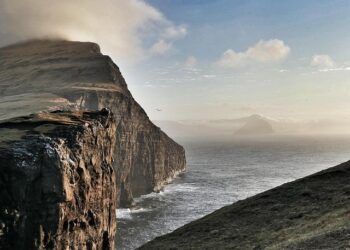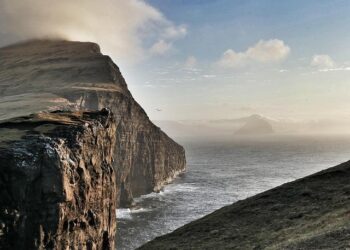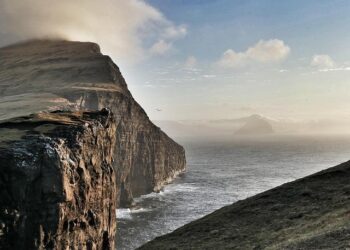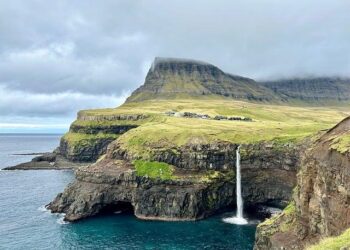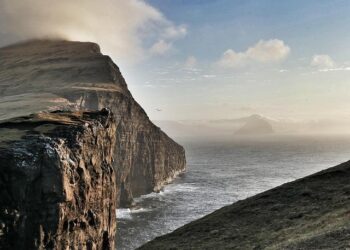Each year, the remote Faroe Islands witness a controversial tradition that captures global attention and ignites fierce debate: the grindadrap, or pilot whale hunt. This annual event, deeply rooted in local culture and history, involves the mass killing of dozens of whales along the islands’ rugged shores. While defenders argue it sustains community livelihoods and heritage, critics-including World Animal Protection-condemn the practice as inhumane and environmentally unsustainable. As calls intensify to end the grindadrap, the world faces a pivotal question: can tradition coexist with modern animal welfare standards, or is it time to bring this age-old hunt to a close?
Grindadrap Tradition Faces Growing International Scrutiny
The traditional practice of driving pilot whales to shore in the Faroe Islands has increasingly drawn condemnation from animal rights activists and the international community. Critics argue the method is inhumane, citing the prolonged distress and suffering inflicted on the whales during the hunt. Global petitions and media coverage have amplified calls for an immediate end to the practice, putting pressure on local authorities to reconsider the cultural justification for grindadráp in light of modern ethical standards.
Despite its cultural significance, the hunt now navigates a complex landscape of controversy, with several governments and conservation organizations urging for alternative, non-lethal management of the local marine ecosystem. Key points raised against the tradition include:
- Animal Welfare Concerns: Evidence of prolonged stressing and inefficient killing techniques.
- Environmental Impact: Potential disruption of marine populations and biodiversity.
- International Legal Pressure: Increased calls for alignment with global wildlife protection treaties.
| Stakeholder | Position | Action Taken |
|---|---|---|
| Local Authorities | Support tradition | Regulated hunt permits |
| Conservation Groups | Oppose grindadráp | Global awareness campaigns |
| International Bodies | Criticize practice | Pressure through treaties |
Environmental Impact and Ethical Concerns of the Annual Whale Hunt
The annual whale hunt in the Faroe Islands poses significant environmental risks that ripple through marine ecosystems. Targeting pilot whales, a species vital to local biodiversity, disrupts their population dynamics and long-term survival. Scientific studies indicate that continuous removal of these whales from the environment affects the balance of marine food chains, impacting fish stocks and other marine mammals. Moreover, the method of the hunt, often involving small boats and handheld tools, results in prolonged suffering and distress – raising urgent questions about animal welfare standards in a modern world.
- Population Declines: Pilot whale numbers are vulnerable to overhunting due to their slow reproduction rates.
- Mercury Contamination: Consuming whale meat exposes locals to hazardous levels of mercury and other toxins.
- Loss of Biodiversity: Removing key species undermines the resilience of ocean habitats against climate change.
Ethically, the grindadráp-steeped in tradition-faces increasing opposition for its inhumane practices. The slaughter methods cause unnecessary pain and prolonged death, contravening growing international norms on wildlife treatment. As global awareness rises, many advocate for alternatives that respect cultural heritage without compromising animal rights. Balancing tradition with compassion has become a crucial debate point, with campaigns urging the Faroese government to adopt more sustainable and ethical approaches to wildlife management.
| Concern | Impact |
|---|---|
| Population Impact | Reduced pilot whale numbers, affecting ecosystem balance |
| Animal Welfare | Prolonged suffering due to archaic hunting methods |
| Health Risks | Mercury and toxin exposure from consuming whale meat |
| Biodiversity Loss | Disruption of marine food chains and habitat resilience |
| Cultural Conflict | Tradition versus growing global animal rights standards |
Calls for Policy Change and Sustainable Alternatives in the Faroe Islands
International pressure and growing environmental awareness have fueled mounting calls for the Faroe Islands to reconsider their long-standing practice of Grindadrap. Conservationists and animal welfare organizations worldwide urge the local government to enact policies that prioritize the protection of whale populations while respecting cultural traditions. Advocates emphasize the need for transparent regulations that limit the scale of the hunt and ensure humane methods, aiming for immediate reforms to halt biodiversity loss.
Efforts to identify viable sustainable alternatives are gaining momentum, highlighting the Faroe Islands’ potential to pivot toward eco-friendly economic opportunities. Suggested options include:
- Developing responsible whale and marine wildlife tourism
- Investing in sustainable fisheries and aquaculture
- Promoting local culinary culture focused on renewable seafood sources
- Engaging community education on marine conservation and animal welfare
| Proposed Alternatives | Potential Benefits |
|---|---|
| Ecotourism Development | Economic growth, whale protection |
| Sustainable Fishing Initiatives | Long-term food security, ecosystem balance |
| Community Conservation Programs | Raised awareness, reduced hunting demand |
– Suggested benefits of these alternatives include economic growth, long-term food security, ecosystem balance, and reduced demand for hunting.
Overall, the post advocates for immediate policy reforms aiming to halt biodiversity loss through a balanced approach that honors tradition but prioritizes environmental sustainability.
Insights and Conclusions
As the centuries-old tradition of grindadrap continues to cast a shadow over the Faroe Islands, growing international concern highlights the urgent need for change. With mounting evidence of animal suffering and increasing calls for sustainable alternatives, the world watches as activists and organizations rally to bring an end to this controversial whale hunt. The future of these majestic marine creatures depends not only on the preservation of culture but on the adoption of humane practices that respect both heritage and wildlife. Ending grindadrap is more than a call for conservation-it is a pivotal step toward global animal protection and ethical responsibility.


